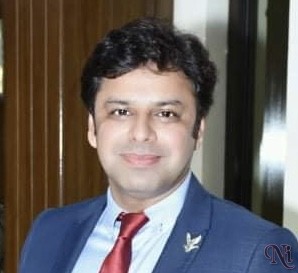Dr. Rizwan Naseer, Security Analyst
Karachi, Pakistan

Once, war was fought in the battlefield and mighty militaries with more men, horses and weapons were victorious but in modern times the character of war has changed. Now wars are fought and won in computer labs. A country with a stronger narrative gets global support and cyber plays a pivotal role in amplifying narrative and counter-adversarial narrative in cyber domain. It not only builds and spread narrative but also undermines adversarial capability.
Modern modes of intelligence, psychological operations, information operations, disinformation campaigns and disabling networks of adversaries are done through cyber power. The Russia-Ukraine war can be analyzed through the same lens.
Russian cyber power widely is known to everyone. Russia is often accused of launching clandestine cyber-attacks against the U.S. and various developed states. As the world is much digitized it has also increased the vulnerabilities of cyber-attacks. Cyber- attacks have acquired the capability to cripple computer systems, denial of service, incur financial losses and massive interrupt operations of critical infrastructure. But imagine all such attacks happening during a war when people need to know how much, their government has achieved and communication lines between people and their government are disrupted.
Such a situation may lead to frustration and uncertainty. In democracies, a chaos is likely to set in under such circumstances.
Russian cyber strategy is offensive in nature and the primary objective is to safeguard Russian digital frontiers. Through this strategy Russia protects its own cyber space and subverts enemy’s cyberspace.
Cyber operations are carried out in both civil as well as military domain. Russian cyber doctrine demands integration of cyber operations fully into strategic communication and full spectrum military operations. In modern times cyber-attacks are carried out in combination with electronic warfare and disinformation campaigns. Successful cyber-attacks can have the advantage of degrading critical information and intelligence gathering. The political effects like taking down websites, attacking banking and finance sectors, meddling transportation controls, flooding dams and delaying government decision-making based on data available to them.
After the Russian special operations in Ukraine, it was thought that Russia will be able to achieve strategic objectives through cyber offense within a few weeks of the war. But as the circumstances unfolded, it happened the other way around. In Russia-Ukraine war, Ukraine is dominating over Russian in the cyber domain whereas Russian military gains are indeed more than Ukraine. But some of the media pundits term it as Russia losing in strategic communication.
In this asymmetric war, Ukrainian leaders made an appeal to the world that their country was under attack from a mighty aggressor. They called on IT professionals from around the world to help defending Ukraine against Russian cyber armies.
Thousands of IT professionals responded to Ukrainian appeal and they picked up their keyboards to defend Ukraine. It has been months that Russian hackers have been unable to disrupt the Ukrainian cyber force.
Ukrainian volunteer cyber army which consists of volunteers from around the world has become more organized, focused and offensive to retreat Russian counterparts. A primary reason for Ukraine’s cyber gains during the war has been the U.S. and her European allies ‘support for Ukraine. NATO members have close coordination in the cyber domain that makes Russia face multiple theatres in cyber defense.
Despite the availability of space-based intelligence from supporting countries, Ukraine has been able to gain access deep into Russian territory by cracking their surveillance cameras.
Russian occupation of Ukrainian territory was also monitored through the same modus operandi. Ukraine monitored the movement of Russian troops, their presence in occupied areas through hacking. Resultantly, Russian seems to make gains on ground but in cyber, Ukraine has achieved politico-military objectives. Russia faces isolation, international diplomatic pressures and her aggression invokes reaction from across the globe. That leaves a plethora of lessons for those nations who have large standing militaries to defend their country that investing in cyber is likely to augment their defence with less cost. Israel is a prime example to make heady in cyber domain. Extensive use of cyber is already underway in the form of network centric warfare. Future wars will be fought through automated killer robots. Great powers are already pouring in massive amount of money to gain excellence in cyber security. The significance of cyber domain can be imagined from the fact that the global cyber security market is projected to grow from $155.83 billion in 2022 to $ 376.32 billion by 2029. Future belongs to digitization and internet of things and those countries are likely to maintain their control over others who dominate cyber domain.
End text.
# Opinions expressed here in this article are those of the author: Ed. Upadhyaya.
